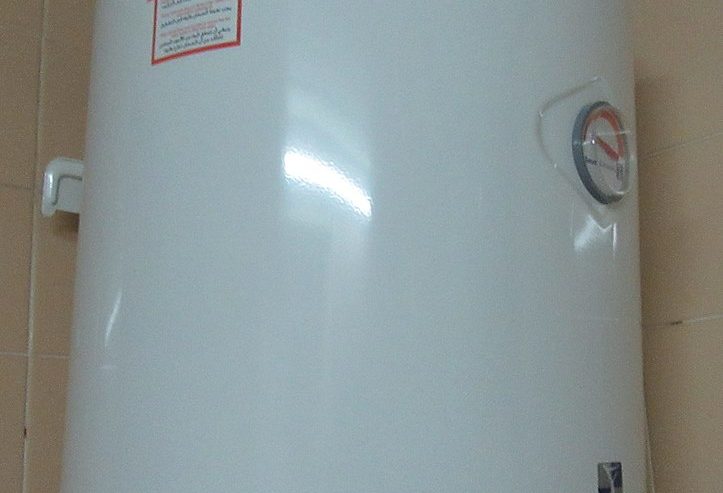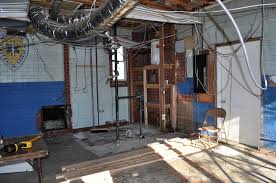Proper water heater maintenance is essential since these appliances play a key role in providing hot water for everyday activities such as bathing, cleaning, and cooking. Just like any other appliance, water heaters require regular upkeep to function efficiently and last longer. Failing to maintain them can result in serious issues like leaks, corrosion, and expensive water damage.
In this guide, we’ll cover the fundamental steps for maintaining your water heater and highlight how proper care can help you avoid costly water damage repairs. Our focus will be on “water heater maintenance,” ensuring you understand the necessary preventive measures. Let’s dive in!
Why is Water Heater Maintenance Important?
Before we get into the how-to, it’s important to understand why water heater maintenance is so crucial. A well-maintained water heater ensures that you:
- Increase its lifespan: Regular care can extend the life of your water heater by preventing sediment build-up and corrosion.
- Enhance efficiency: A well-maintained heater will heat water faster and more efficiently, reducing energy consumption.
- Prevent water damage: Leaks or failures in water heaters can lead to significant water damage. Preventative maintenance can help avoid costly repairs and potential water damage restoration.
- Reduce costs: Repairing or replacing a water heater can be expensive, especially if water damage restoration is involved. Regular maintenance helps you avoid these sudden expenses.
Steps for Water Heater Maintenance
1. Check the Pressure Relief Valve
The pressure relief valve is a safety feature that prevents the water heater from building up too much pressure, which could lead to an explosion or significant leakage. Regular testing of this valve ensures it’s working properly and very necessary for water heater maintenance.
- How to check it: Locate the valve, usually found at the top or side of the unit. Lift the valve lever to release pressure, then close it. If water flows freely when you open it and stops when you close it, the valve is functioning. If it doesn’t, consider replacing it immediately to avoid potential leaks and the need for water damage restoration.
2. Inspect for Leaks
Leaks are one of the most common causes of water heater failure and subsequent water damage. Inspecting the area around your water heater regularly for any signs of leakage is essential in water heater maintenance.
- Where to check: Look around the base of the unit and around any fittings or valves. Catching a leak early on can save you from extensive water damage restoration.
3. Drain the Tank to Remove Sediment
Over time, sediment builds up at the bottom of the water heater tank, especially in areas with hard water. This sediment reduces the efficiency of the heater and can cause it to overheat, increasing the risk of a breakdown or a leak.
- How to do it: Turn off the water heater, connect a garden hose to the drain valve at the base, and let the water flow into a bucket or drain. Once the tank is empty, turn the water supply back on for a few minutes to flush out any remaining sediment. Regularly flushing your tank can significantly reduce the likelihood of leaks and the need for water damage restoration.
4. Check the Anode Rod
The anode rod is a metal rod that attracts corrosive elements in the water to prevent the water heater tank from rusting. Over time, the rod depletes and needs to be replaced to continue protecting your tank.
- When to check: Inspect the anode rod once a year and replace it if more than 50% of the rod has been worn away. A depleted anode rod increases the chances of rust, leaks, and potential water damage restoration.
5. Adjust the Thermostat
Setting your thermostat to the right temperature not only saves energy but also extends the life of your water heater. Keeping the water too hot can cause the heater to overwork and may lead to overheating or leaking.
- Ideal temperature: The U.S. Department of Energy recommends setting your water heater to 120°F. This prevents excessive pressure on the heater and helps avoid the risk of leaks that could lead to water damage.
6. Insulate the Heater
Insulating your water heater and the surrounding pipes helps improve efficiency by reducing heat loss, allowing the unit to maintain water at a steady temperature without overworking. This can also help prevent water heater malfunctions that could lead to leaks.
- How to insulate: Use a water heater insulation blanket to wrap the tank and insulate the pipes with foam sleeves. This is especially important in colder climates to prevent pipe bursts that could cause extensive water damage, requiring water damage restoration.
7. Replace Old Water Heaters
If your water heater is more than 10-15 years old, it may be time to replace it. Older models are prone to leaks, corrosion, and breakdowns, all of which increase the risk of water damage.
- When to replace: If you notice rusting, strange noises, or frequent leaks, it might be time to invest in a new, more efficient unit. Replacing an old water heater can save you from unexpected leaks and water damage restoration costs in the future.
How Water Heater Maintenance Prevents Water Damage
Water damage caused by faulty water heaters is one of the leading causes of property damage, especially in basements or utility rooms where these heaters are often installed. Regular maintenance not only extends the life of your water heater but also protects your home from severe water damage.
Here’s how:
- Early Leak Detection: Regular inspections help you identify small leaks before they turn into floods. This preventive action can help you avoid the need for water damage restoration services.
- Corrosion Prevention: Checking and replacing the anode rod and draining the tank prevents corrosion, which can lead to tank failure and major water damage.
- Temperature Control: Setting the thermostat to the right temperature prevents overheating and potential leaks, minimizing the risk of water damage.
- Sediment Removal: Draining the tank to remove sediment reduces stress on the heater and prevents leaks that could lead to water damage.
What to Do If Water Damage Occurs
Even with the best preventive measures, there is always a risk of water heater failure. If you find yourself dealing with water damage due to a faulty water heater, it’s crucial to act quickly to minimize the damage.
Here are the steps you should take:
- Turn off the water supply: Immediately shut off the water supply to the heater to prevent more water from leaking out.
- Shut off the power: If you have an electric water heater, turn off the power at the breaker. If it’s gas, turn off the gas supply.
- Contact a water damage restoration professional: Water damage can be extensive and hard to repair on your own. A professional water damage restoration company like PuroClean can help assess the damage, remove water, and restore your property to its original state.
Conclusion
Regular maintenance of your water heater is crucial for preventing leaks, enhancing efficiency, and prolonging the appliance’s lifespan. More importantly, it helps you avoid expensive water damage and the need for extensive repairs. By following a few simple steps, you can keep your water heater in optimal condition and safeguard your home from potential damage.
If your water heater malfunctions and causes water damage, it’s important to contact a professional water damage restoration service right away. This will help minimize the damage and ensure your property is restored promptly.
Why Choose PuroClean of Jericho for Your Water Damage and Mold Remediation Needs in Jericho, NY?
When dealing with water damage and the risk of mold growth, selecting the right restoration company is essential. Here’s why Puroclean of Jericho is your reliable choice across Jericho, including Nassau County, Bronx County, Suffolk County, and Manhattan:
- Local Expertise: We are a locally owned and operated company with extensive experience serving Jericho and surrounding areas. We understand the unique challenges associated with water damage in our region, from seasonal weather patterns to specific building materials commonly used in our communities.
- Fast Response & 24/7 Availability: Water damage emergencies don’t wait
- for convenient hours. We offer 24/7 emergency response to minimize further damage and get the restoration process started swiftly. Our prompt response time ensures your property suffers less and recovers faster.
- Highly Trained & Certified Technicians: Our team comprises certified and highly trained water damage restoration technicians. They possess the necessary skills and knowledge to assess the situation effectively, develop a customized remediation plan, and execute the job efficiently and safely.
- Advanced Equipment & Technology: We invest in cutting-edge technology and equipment to ensure a thorough and efficient remediation process. This includes advanced drying equipment, industrial-grade dehumidifiers, and state-of-the-art mold detection tools.
- Insurance Navigation & Hassle-Free Claims: We understand the complexities of insurance claims. Our team will work directly with your insurance company to streamline the claims process and ensure you receive the maximum coverage for your restoration needs.
- Open Communication & Transparency: We believe in clear communication throughout the remediation process. Our team will keep you informed of every step, answer your questions promptly, and address any concerns you may have.
- Commitment to Customer Satisfaction: Your satisfaction is our top priority. We are dedicated to exceeding your expectations by providing exceptional service, high-quality workmanship, and a commitment to restoring your property to its pre-damage condition.
Protect Your Investment & Restore Your Peace of Mind
Never allow water damage or mold growth to stress you out. Reach out to PuroClean of Jericho at (516) 421-6400 for a free consultation. We’re here to help you navigate the restoration process and restore your property quickly, safely, and effectively.




 PuroClean of Jericho
PuroClean of Jericho